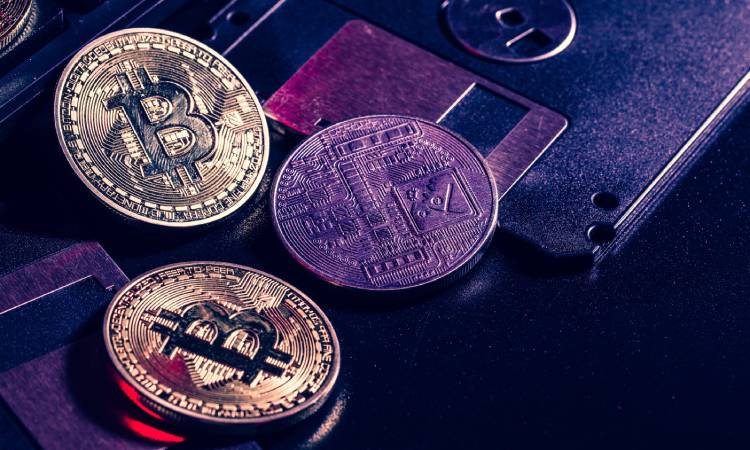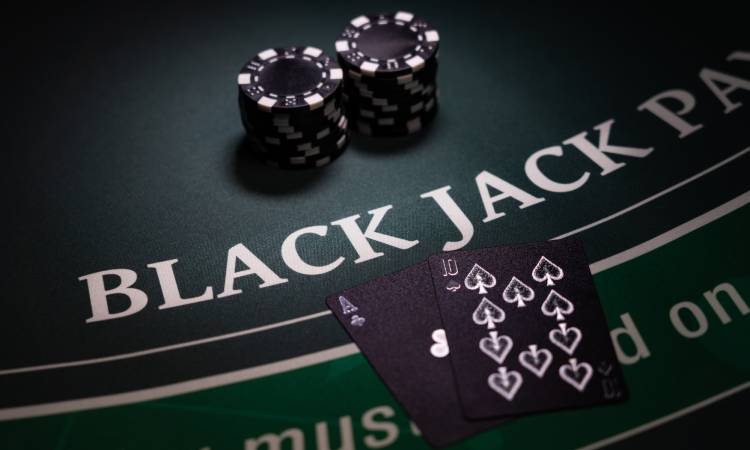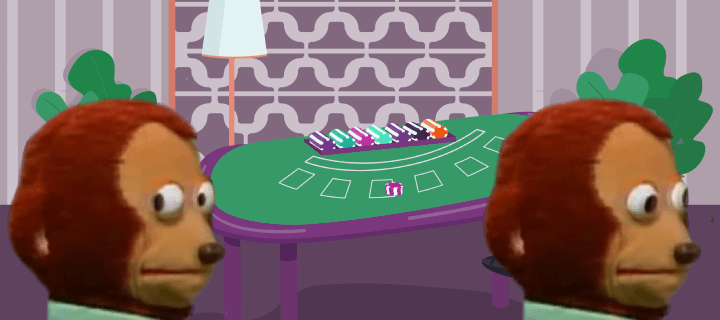What Does It Mean to Fold in Poker?

If someone’s whole understanding of poker is based on what they’ve seen on TV or in movies, folding can seem like a terrible idea. On-screen heroes almost always have an incredible hand or make a great bluff in order to win the pot at any cost. This is not how poker works in the real world. Folding, like all other possible actions, is simply a technique for maximizing profit and reducing costs.
When you fold your cards in poker, you stop participating in the hand and lose all of the money you’ve put into the pot up to that point. The hand is ended for you after your cards have gone into the “muck.” You can’t win the hand anymore, but you can’t lose any more money or chips until the next one.
Must Read: Silver Strike Slot Games
When You Fold, What Happens?
You’re done with the hand after you click the fold button, dump your hand into the muck, or verbally declare that you’re folding. Play continues if other players join in. If you’re playing heads-up, your opponent scoops the pot and the game moves on to the following hand.
Folding Techniques
Folding is simple while playing online. All you have to do is press the fold button. There are a few more factors to consider in live play. You should never show your cards unless the hand is over and you have a compelling cause to do so. It is both against the rules and a major breach of etiquette to do so in the middle of the hand, as it can provide unfair information to one or more players. It’s fine to “fold and show” if the hand finishes when you fold. Good players, on the other hand, practically never do this. Poker is an information game, and giving your opponents any additional knowledge is rarely a good decision.
When Is It Appropriate to Show My Folded Cards?
The only time you should show a folded hand is if you’re trying to project a certain picture. It’s worth noting that I used the word “consider” in my sentence. Even when we extend our hand for what we believe to be a positive motive, it frequently ends up giving away too much information or having the opposite effect than we intended.
For example, we’re late in a tournament and on the verge of elimination. We shove all-in twice in a row with our tiny stack, the first with garbage and the second with A9. Because A9 is a decent hand to shove there, once everyone has folded, we flip our cards over to “show” to the table that we are not crazy and that our shoves are reasonable and worthy of respect. At first appearance, this appears to be a fantastic idea. Maintaining our fold equity late in a tournament is quite beneficial, as blinds are often very high, and winning them without a fight is desirable.
The only flaw in the example is that we might end up shooting ourselves in the foot. Let’s imagine we get up QQ, KK, or AA shortly after flashing our A9 and shove all-in once more. The player in the large blind now glances down at KQ, which would ordinarily be a straightforward call for him. Instead, he folds since he now believes we are too close and only shoving Ax cards or better. We’ve just missed out on a fantastic opportunity to double up.
When Should I Fold My Hands?
When there are no further profitable actions to take, a hand should be folded. You’re basically waving the white flag and handing over the chips or money you’ve already put into the pot. However, just because you lose a few chips does not mean you’ve made a mistake or done something wrong.
Any winning strategy includes folding.
When you fold your hand, it may appear that you are losing money right now. This is correct, but it does not imply that you committed a mistake. It simply means that you had no other profitable possibilities. In reality, when all else fails, a fold is nothing more than a technique to cut your losses.
During the course of the game, you will be confronted with aggression, such as bets or reraises. When this happens, you usually have three options: reraise, call or fold. A good poker player will evaluate his or her alternatives and determine whether reraising or calling is lucrative in the long run. If both of those options are losing bets, the only option (and the best one) is to fold.
Must Read: Hands Per Hour
It’s impossible to win every hand in a game of poker.
You may have heard the term “maniac” or observed someone at your table who appear to bet and raise every chance they have, refusing to fold until the very last hand. These players have been known to develop massive chip stacks and instil dread in the hearts of everyone at the table. But, as the saying says, “easy comes, easy goes,” and maniacs invariably crash and burn as the good players at the table acclimate to them. In fact, my favorite opponents are those who have trouble folding their hands.
In the end, winning poker judgments boil down to maximizing our expected value in every decision we make. It all comes down to making the best decision that either wins or loses the most. While you should aim to make the play that will win the most money in the long run, you should not want to win every single hand you play. That is the distinction.
Because our opponents will be picking up valuable hands at times, attempting to bluff or blow them off their hands every time we are engaged is the wrong mindset to adopt. If your sole emphasis is unrealistic, which is an unachievable endeavor in and of itself, the end effect will almost always be negative, barring a particularly hot session. Being crazy will almost certainly lead to bankruptcy in the long run.
It All Comes Down to Expected Value
In poker, expected value, or EV, is what determines how much money you make. If the sum of our actions (bets, calls, folds) in a given hand results in a long-term profit if the hand is played infinitely, then our line has a positive expected value, or +EV. The hardest element is determining whether our behaviors are +EV.
Choosing the +EV action isn’t always evident. If someone shoves all-in before the flop and we have AA, we can be certain that our move will make us money in the long run. Many lost decisions, on the other hand, are straightforward to recognize. Let’s pretend we’re playing with 72o and someone shoves all-in before the flop. Unless we’ve already put a lot of money into the pot, this is always a simple fold, and we know we’re making the right decision.
Unfortunately, many of our judgments are not so straightforward. What differentiates the truly great players from the rest are these grey area moments. Even yet, by developing a strong core approach that consistently places you in profitable spots, you can reduce the number of difficult decisions you have to make throughout a session.
So-called “tough” places become a lot uncommon by playing a limited number of hands, preferring to play in position over out of position, and taking the lead in the majority of hands. After that, if someone has a lot of expertise, figuring out the simplest way to make money becomes second nature. The procedure can be sped up with careful research and the usage of software solutions. Furthermore, going over your previous hands and looking for better ways to play them will help you avoid making the same mistakes again and over.
The point is that in poker, no emotion should ever be associated with a certain move or statement. Only one thing should ever be on our minds: which activities are profitable, or better yet, which actions are the most profitable. Because there are often multiple courses that have +EV.
Conclusion
In conclusion, when studying poker, you should not think of folding as a bad thing or as the unsatisfactory conclusion to a bad hand. Rather, think of it as a way to reduce your losses and get out of unfavorable or unproductive situations. Folding is your ally.







